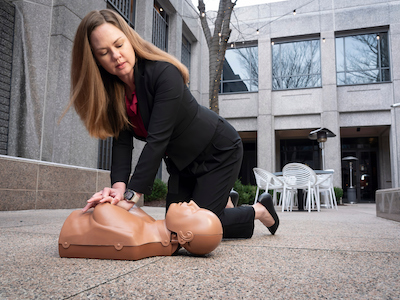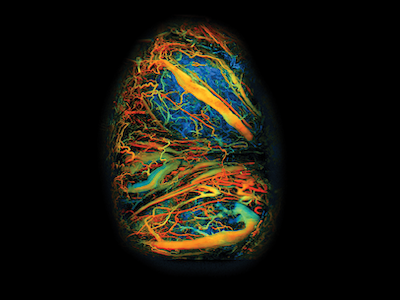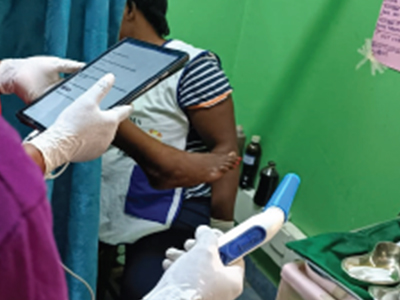
KURe Renewal Awarded
Cindy L. Amundsen, MD, principal investigator and director of the Multidisciplinary K12 Urologic Research Career Development Program, and program specialists Friederike Jayes, DVM, PhD, and Rebecca Kameny, PhD, were awarded $3.8 million over five years by NIH’s National Institute of Diabetes and Digestive and Kidney Diseases (NIDDK). This renewal award will lead to 15 years of continued funding, which has thus far supported 14 early-career researchers. The program’s strengths are a commitment to multidisciplinary clinical, translational and basic research, structured mentoring relationships and a focus on individualized career development. Success is facilitated through strong institutional support, experienced leadership and highly skilled, dedicated mentors.
Read more about the KURe Award
Faculty Contribute to AUGS Expert Consensus National Urogynecology Research Agenda, Featured in Educational Resources

Cassandra Kisby, MD, MS (Residency Class of 2018), and Nazema Siddiqui, MD, MHSc (Urogynecology Fellowship Class of 2010) , have contributed to the American Urogynecologic Society (AUGS) National Urogynecology Research Agenda 2023: A Path Forward for Advancing the Treatment and Management of Pelvic Floor Disorders.

Developed by the AUGS Scientific Committee, the document serves as an expert consensus guidance for academicians in the field of urogynecology. The publication is a resource about where research stands in urogynecology, with suggested next directions.

Cindy Amundsen, MD, is featured in an educational resource article with an accompanying activity sheet focused on what causes problems with the lower urinary tract, published by Futurum Careers. Dr. Kisby is highlighted in a profile about her work as a physician-scientist, mentorship and clinical training. She addresses using regenerative medicine technologies (such as stem cells) to help women who have pelvic floor disorders or were born with differences in bladder and gynecologic anatomy. As a clinician-scientist, she has a diverse research profile that includes work involving 3D printing.
BIRCWH Scholar Spotlight

New Duke research shows that women are less likely than men to receive bystander CPR — this could be due in part to concerns about inappropriate touching or harm to the victim. To address this, Audrey Blewer, PhD, MPH, suggests that using a CPR manikin with female breasts may be used to train people.
Dr. Blewer is a Building Interdisciplinary Research Careers in Women’s Health (BIRCWH) K12 institutional career development program scholar. BIRCWH provides support and funding for Duke faculty whose research focuses on women’s health. Dr. Blewer will work to understand mechanisms that influence whether a bystander decides to perform CPR on a woman and use that information to develop interventions.
Vaccine Research by Geeta Swamy, MD, Receives $2.2 Million Funding from CDC for CISA Project

The Duke Human Vaccine Institute (DHVI) successfully recompeted for a five-year, indefinite delivery/indefinite quantity (IDIQ) contract from the Centers for Disease Control and Prevention (CDC) Immunization Safety Office to serve as one of eight medical research centers for the Clinical Immunization Safety Assessment Project (CISA). Under this new award, DHVI will receive $2.2 million for Dr. Swamy to lead a study to assess the safety of simultaneous mRNA COVID-19 and inactivated influenza vaccines in pregnant participants, which is timely given the recent approval of RSV vaccine in pregnancy. The contract is managed by DHVI, but this study in pregnant participants will be conducted through the Duke Perinatal Clinic’s research team, which has also worked in the CDC network for many years.
NIH Awards $3 Million R01 Grant to Liping Feng, MD, and Pathology Team for PFAS Study

The National Institutes of Health has awarded a $3 million, five-year R01 grant starting in April 2023 to Liping Feng, MD, and her team to support their investigation of the effects of perinatal per-and polyfluoroalkyl substances (PFAS) exposure on immune response to vaccination during pregnancy and in offspring after birth through altered cellular immunity and gut microbiota. They will also examine the antibody transfer from the maternal compartment to offspring through the placenta and breast milk by disrupting endocrine signaling and antibody transfer pathways.
Dr. Feng is principal investigator on the study, which is a collaboration with Herman Staats, PhD, and Chelsea Landon, DVM, PhD. It will make significant contributions to fill the knowledge gap regarding PFAS immunotoxicity during early life for policy makers and critical information for the cause and benefit of breastfeeding, especially in highly contaminated regions.
Researchers Create Real-Time View of Placental Development in Mice

Dr. Feng and colleagues at Duke’s Pratt School of Engineering have developed a new method to visualize the growth of a placenta throughout a mouse’s pregnancy. By coupling an implantable window with ultrafast imaging tools, the approach provides the first opportunity to track placental development to better understand how the organ functions during pregnancy. The research was selected for the cover of Science Advances.
Urogynecology Study Using AI-based Tools Awarded $2.65 Million through NIDDK

A research team at Duke, led by Principal Investigator Nazema Siddiqui, MD, MHSc (Urogynecology Fellowship Class of 2010), has been awarded a four-year, $2.65 million R01 grant through the National Institute of Diabetes and Digestive Kidney Diseases (NIDDK) to study overactive bladder (OAB) and how artificial intelligence (AI)-based tools and algorithms could potentially be used to help with treatment options. The grant began Feb. 1.
The research team’s aim is to determine if OAB subtypes exist, and to further develop an AI-based tool that would allow clinicians to better target the right therapy to the right patient. To do this, data from over 4,000 patients gathered in two large-scale NIH cohort studies will be used. Predictive modeling, which is a type of clinically informed AI, will be utilized to evaluate subtypes and to see if patients from different subtypes respond differently to common therapies using microbiome profiles. The goal is identifying ways for patients with OAB who are seen in clinic to receive more effective, targeted therapy from the start, instead of putting them on a care pathway where they may eventually progress through five or six treatments (with all of the associated office visits).
"For years, non-cancerous gynecologic issues, like OAB, have received far too little attention despite the high impact that they have on people’s daily quality of life. Duke has several investigators that are leading the way in how to sensibly use AI in health care. I am thrilled to incorporate these data scientists with our microbiome research team so that together we can apply innovative, cutting-edge technologies to improve an area of women’s health where better therapies are desperately needed.”
In addition to Dr. Siddiqui as corresponding PI, co-investigators are urogynecologist Eric Jelovsek, MD, MMEd, MSDS (Residency Class of 2003); Li Ma, PhD, Duke Department of Statistical Science; and Charles Page, PhD, Duke Department of Biostatistics & Bioinformatics. Collaborators include co-PI Lisa Karstens, PhD (Oregon Health & Science University); and co-investigator A. Lenore Ackerman, MD, PhD (UCLA).
Global Health Spotlight

GOAL: Eliminating cervical cancer and what it means for women, girls
"We’re in a lucky place to have the technology and tools to do it. So, the next century of women and girls will benefit from them."
— Megan Huchko, MD, MPH